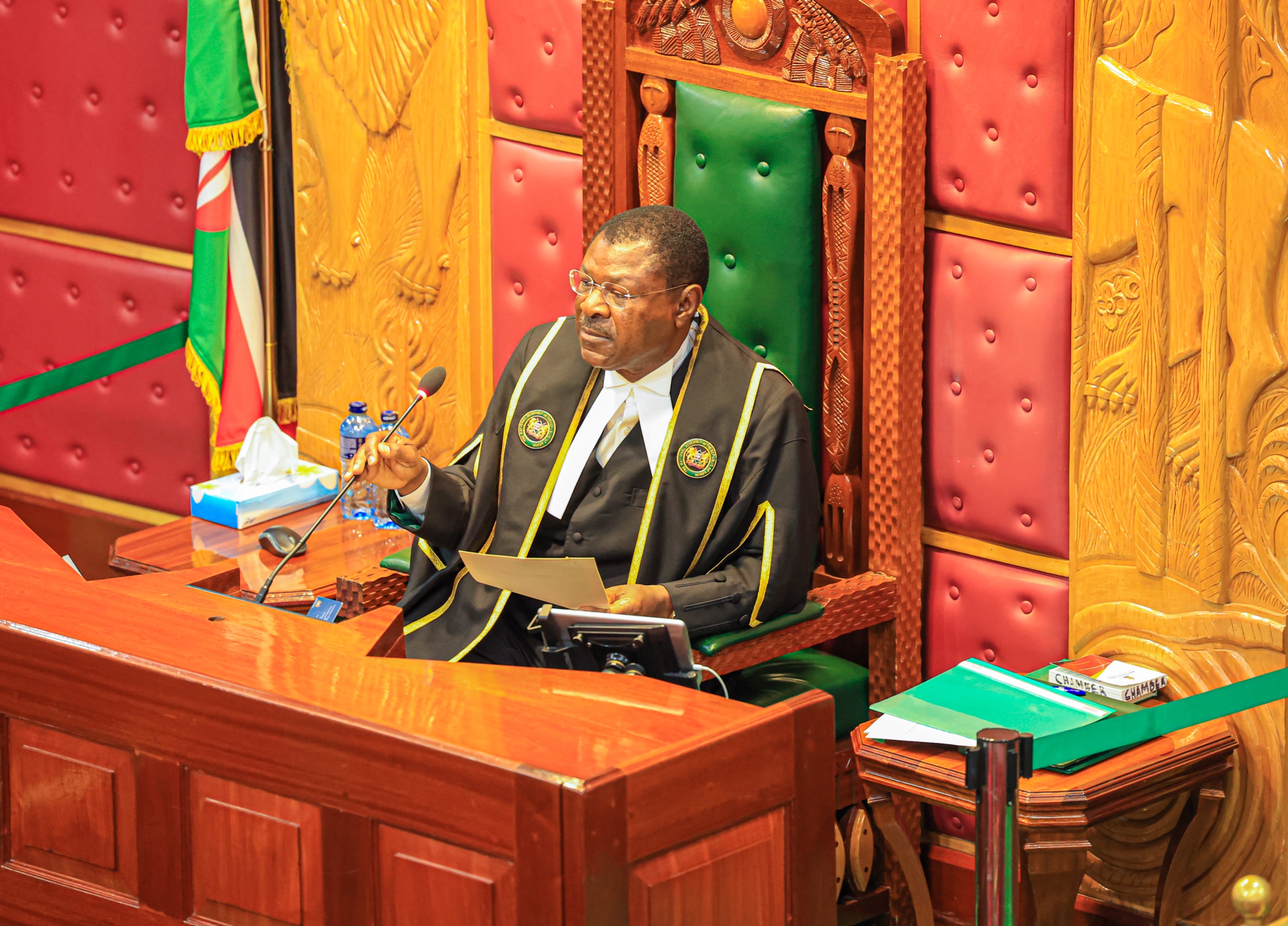
Wetangula declines bid by Tetu MP to withdraw support for Gachagua impeachment » Capital News
NAIROBI, Kenya, Oct 8 — National Assembly Speaker Moses Wetangula has declined request by Tetu MP Geoffrey Wandeto to withdraw his signature on the impeachment motion against Deputy President Rigathi Gachagua.
The National Assembly Speaker cited Standing Orders which disallow the withdrawal of support for tabled motions.
“I received a letter from one Geoffrey Wandeto who wanted to remove his signature but I want to invite him to read the standing orders,” the Speaker remarked.
“Once you append your signature on an impeachment motion you have crossed the Rubicon. You can’t withdraw that signature,” Wetangula said.
Section 62 (1) of National Assembly Standing Orders provides that: “In every instance where the Constitution lays down that a fixed number of Members is necessary to support the moving of, or to decide any question on a motion, any amendment motion to such motion shall not [be] passed unless supported by the fixed number of Members required to pass the original motion.”
The motion, introduced by Kibwezi West MP Mwengi Mutuse, accuses Gachagua of eleven violations, including breaches of the constitution, corruption, and incitement.
Threshold
Mutuse presented the names of 291 MPs supporting the motion, a number that surpassed the required 117 signatures to meet the constitutional thresholdfor tabling it on the floor of the House.
Speaker Wetangula confirmed that the motion met all the necessary criteria for the impeachment process to proceed.
“I want to make it clear to this House and to Kenyans that I have no malice, no ill-will, and no personal vendetta against the Deputy President. I am simply fulfilling my duty as a citizen and Member of Parliament,” Mutuse said when he tabled theh motion on October 1.
Charges against Gachagua include gross violations of the Constitution, promoting ethnic discrimination, and undermining national unity through divisive public statements.
He also stands accused of contradicting government policies and failing to uphold his duties as Deputy President, particularly in relation to collective Cabinet responsibility.
Mutuse accussed the Deputy President of making false and malicious statements, which breach both the Penal Code and the Leadership and Integrity Act.
He cited gross misconduct, including reckless attacks on the National Intelligence Service, insubordination to the President, bullying public officers, and involvement in corrupt practices.
About The Author